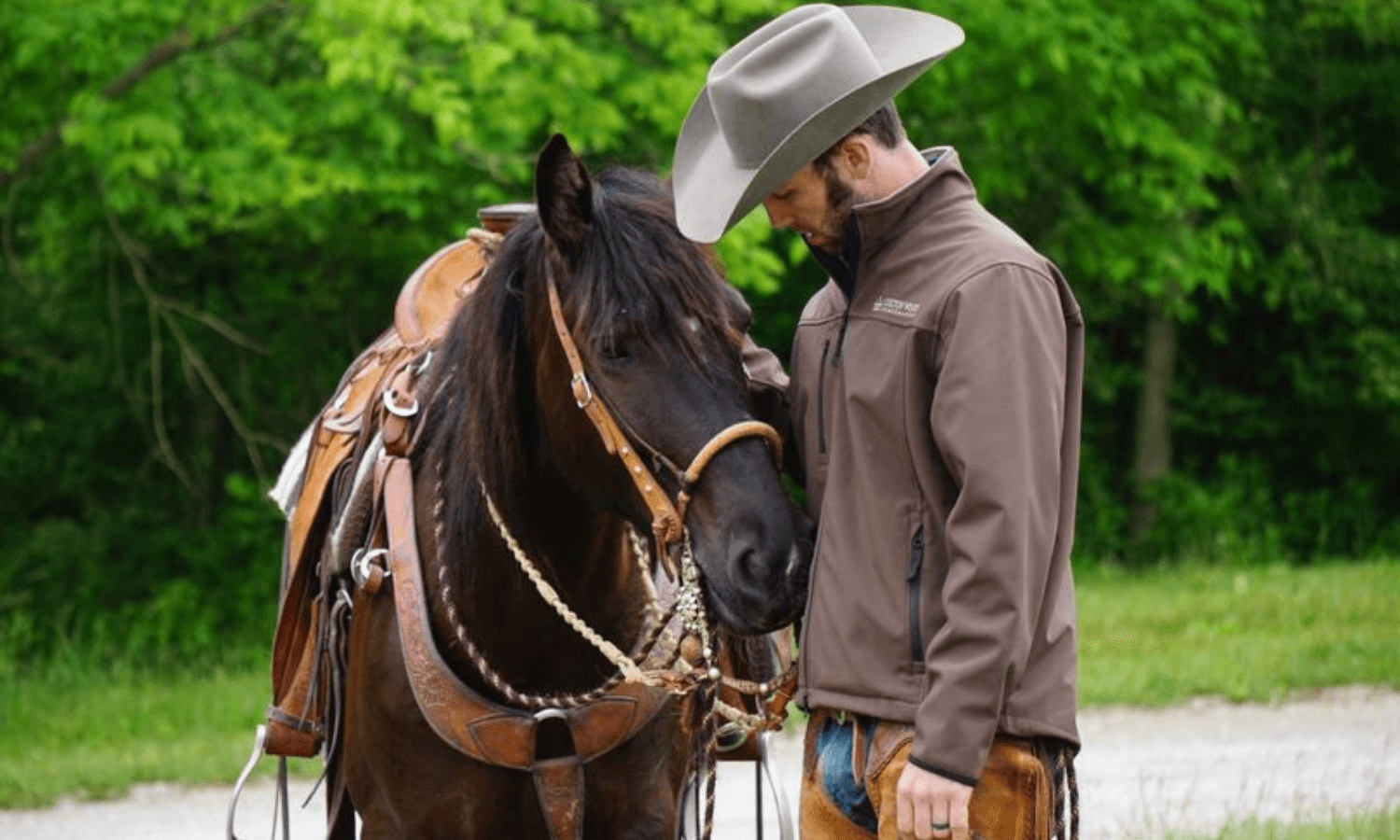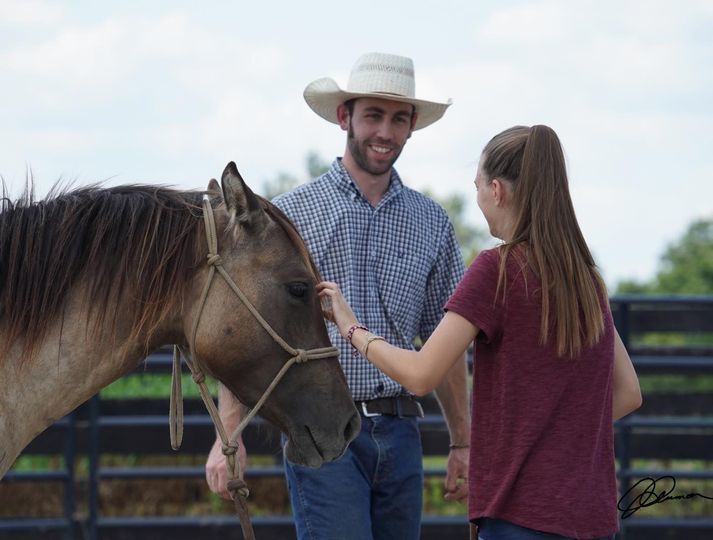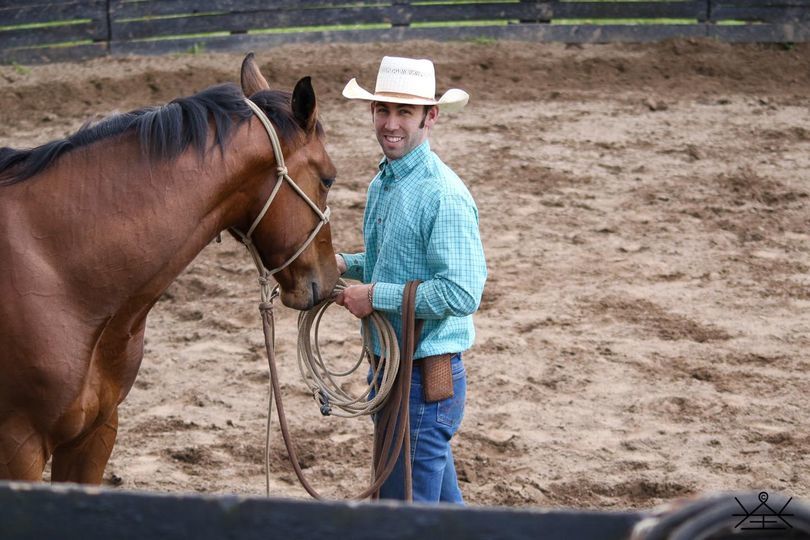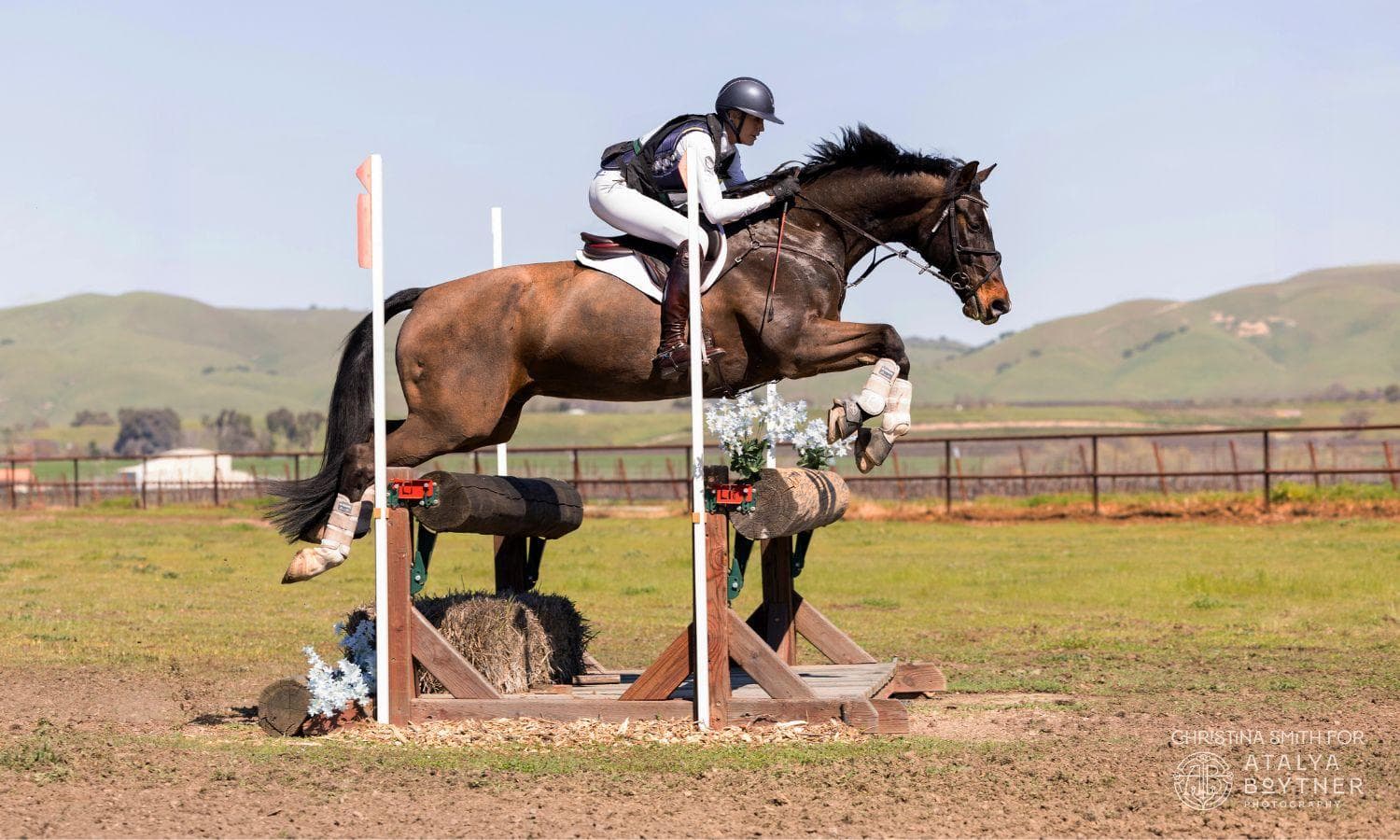Featured Clinician: Colton Woods

The Featured Clinician article series is provided through a partnership between STRIDER™ and the USEA. As part of our commitment to diversity and enabling access, our featured clinicians includes spotlights on professionals from other disciplines with complementary skills to benefit the sport of eventing.
“For amateurs or professionals in any discipline, you have to be able to communicate with your horse in a way that the horse is willing to take action on what you have asked. There has to be a willingness to listen to you, and it takes time to build that trust and willingness.”
To help people improve trust and willingness with their horses through clear communication is just one feature of the horse and human development taught by top trainer Colton Woods. Natural horsemanship has been gaining popularity throughout the eventing world thanks to popular clinicians such as Tik Maynard and its prevalence in successful training programs such as that of David and Karen O’Connor. With multiple Extreme Mustang Makeover top ten finishes and a successful training business that facilitates the development of horses for every discipline from reining and (hunter jumpers) to ranch horses to eventing, Woods is an accomplished horseman for whom good communication leads the way.
A popular clinician, Woods operates a boutique training business based in Paris, KY alongside his wife Maredith Woods. In addition to a demanding travel schedule to teach multi-day clinics around the country, Colton Woods Horsemanship also boasts a Professional Horseman’s School which enables aspiring professionals to build profitable horse training businesses.

Team STRIDER caught up with Colton Woods at this year’s EQUITANA USA where Woods spoke on a variety of panels as well as shared his knowledge and best practices in various demonstrations in front of large crowds who gathered throughout the weekend at the Kentucky Horse Park.
Though Woods has built a business teaching larger groups at clinics, sharing insights with up-and-coming professionals, and is now host of the Heart of Horsemanship podcast, public speaking is a skill he has spent a great deal of time on and discipline to develop.
“I was the kid in high school who got sweaty palms and would mentally blackout before having to give a five-minute presentation,” Woods tells STRIDER.
“I was terrified of public speaking until my first semester at college. I had to give so many speeches and realized I needed to make myself enjoy it somehow. So, I convinced the professors to let me talk about the things I cared about- horses and training and big issues facing the industry.”
“I’ve realized that if I want to help the horses I have to communicate well with people, and clinics are a great way to help larger groups of people with their horses… I have found what I love to do. I’m now comfortable speaking about horses and training and all of this stuff in front of big groups of people.”
“With the professionals who come to us for business coaching, I emphasize that becoming a good trainer means you can teach someone else to do what you are doing. You have to ask yourself: how can I communicate to the horse what I want him to do?”
“Public speaking is really just communicating to people with clarity so that folks can reiterate back what you’ve delivered in a way that makes sense. It’s a big feedback loop.”
For Woods, the principles of public speaking guide much of his approach with the horses. An emphasis on simplicity can be hugely beneficial.
“When training my horses, we are asking them questions, making requests of them. When I ask my horse a question I want their understanding to be so clear that if I were to give them a notebook and pen, they could in theory write down the exact definition of what I am asking of them. My question could be me requesting lateral flexion, shoulder-in, haunches-in, steering, or on to flying lead changes and in each request I want my horse to think, ‘I know the answer to that’ or ‘Oh! I know how to find that answer.’”

“Leadership is just the ability to influence. Ask yourself: can you only influence the horse on a perfect sunny day in an indoor with no windows? Or can you influence your horse in a high-energy environment when things could be uncertain?”
“In day-to-day communication with our horses, the biggest thing is consistency. Everything outside of the training session makes such a drastic impact on the horses. There are so many hours in the day outside of a training session, so be consistent in mindset, expectations, and interactions with horses. If you let that go, it doesn’t matter how good your training is.”
“For the majority of people, horses are their recreational hobby. People are doing this to enjoy their horses and enjoy what they are doing. In many of the clinics, I teach I start off by saying that I am a translator between the owner and the horse.”
“I give everything I can to help people with their horses. And the whole time, I am getting better at communicating with different types of horses. I’m getting better at clarifying what the owner is looking for, building trust with a horse – and building it quickly- and learning how to better communicate with different types of people.”
To foster more positive experiences with our equine partners and enable better communication, Woods emphasizes a good system, empathy, awareness, and a clear mind.
“Set your soul and your mind in the right place before you get out to your horse. Whether you need a quick meditation or whatever. Your horse needs you to be in a good headspace. Be aware of your headspace and remember to adjust your expectations for yourself and for your horse when you go spend time with them.”
“Your horse’s safety relies on where you are mentally, physically, and emotionally. They will have to respond to it if you are not in the right headspace, it’s how they are wired.”
“Have a plan and stick to it. It’s a baseline, your starting path to say where you’d like to be and to keep you on track. Some days you’re ahead and some days you’re not but that plan will keep you focused.”
A good framework may sound simple enough to set up, but it takes dedication to put that framework into practice in a variety of situations.
“So much with horses is simple, but it’s not easy. When you have thousands of hours under your belt something can look simple but that doesn’t mean it’s easy. That’s what gets so frustrating for people with horses and life.”
Woods’ entrepreneurial spirit has guided much of his training and business approach. As a teenager, Woods first started working with horses at a rescue and figured out a way to expedite their rehabilitation to make them more suitable for rehoming. With experience in the Arabian sport horse world, hunter/jumper barns, and after learning from some of the nation’s top horsemen and women, Woods realized that much of the industry lacked a sustainable structure.
“I started building my business as I would any business. Running a training barn as a business is a really novel idea for some… So much of what happens in this industry is so unsustainable, you see and meet a lot of trainers who don’t set themselves up for when their bodies can’t do the physical parts of the job anymore.”
As with horse training, Woods highlights a systematic approach to business.
“Systems enable you to build confidence and to know your worth, and getting paid what you’re worth benefits your clients.”
“A successful horse trainer has to have a system or a framework by which they train horses. Of course, that has to be customized for each horse. What makes your program special is that you can explain to a client how their horse will progress. Of course, each horse makes progress in their own way at their own rate, but you have to have a plan.”
For more details on Colton Woods Horsemanship and available programs, visit www.coltonwoodshorsemanship.com. The Heart of Horsemanship podcast is available through all major podcast apps, and you can connect with Colton Woods at upcoming clinics through STRIDER at www.striderpro.com.
STRIDER is the leading entry platform across disciplines for the equestrian industry. From enabling riders to discover and book the perfect opportunity to helping equestrians across the industry grow and run their businesses, STRIDER fosters connections to top-tier experiences. Please visit www.striderpro.com to learn more about the suite of software products and services available.















